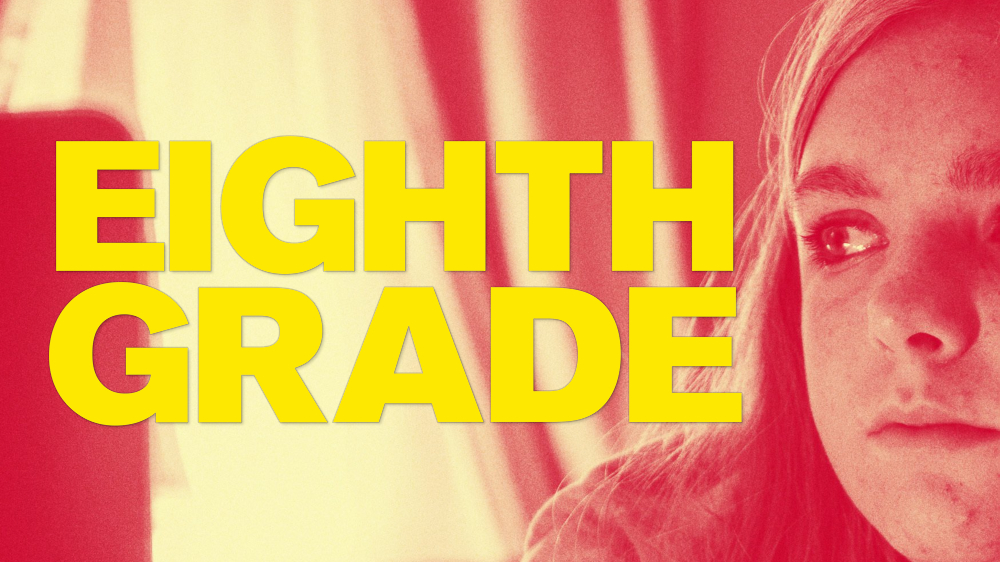When production company A24 announced the opportunity for 100 schools to host free screenings of this summer’s indie hit, Eighth Grade, MHS sophomore Ann Sabin was inspired. Eighth Grade follows the final week of middle school for Kayla, the film’s overwhelmingly relatable protagonist. Kayla’s quirks resonate with viewers of all ages, but Sabin knew the character’s experiences particularly mirrored those of high school students. “It’s not really a documentary about eighth grade,” she says. “It’s more about explaining the feelings that we are experiencing right now in this weird time.” What is this weird time? Sabin, along with many of her peers, expresses concern over the social media era, and the anxiety that comes with the internet. Social media gives users the power to control their identity; and as Sabin describes it, “You’re putting out the way you want to be seen.” Protagonist Kayla feels this pressure, laboring to maintain the image she projects online.“You’re not quite developed yet, and [on social media] you’re forced to be, ‘This is who I am, and this is all I stand for,’” says Sabin.
With parallels to MHS in mind, Sabin first proposed the possibility of Marblehead’s own Eighth Grade screening to English teacher Connor Ryan during a study hall. From there, the pair brainstormed how the event would run, taking inspiration from other students’ ideas. With freshman Sophia Nickolas’s judgement, Sabin was able to make an argument. “Don’t watch it! It’s good, but extreme – actually you should,” which Sabin believed, “summed up [the movie] perfectly.” After submitting this quote as a part of her reasoning, she soon found out that MHS would be one of the 100 schools to win a free screening of the film.
Before the event, Sabin expected the audience’s reaction to vary based on personal experience. “Some portions of the kids will relate to Kayla and feel emotionally connected to her,” she explained just days before the screening, while others, “may not feel anything… Some people are like, ‘This is too dramatic’… ‘This is not accurate’… other people are like, ‘This is spot on for me.’” In terms of her own experiences, Sabin knew the movie best compared to her freshman year at MHS. “I wanted to be a part of everything but I also didn’t think I was ready.”
After the screening, Ryan reflected on these “fits and starts” of maturing, admitting that teachers often forget that their students do not grow in a steady rise. For him, the movie was a much needed reminder about the disconnect between students’ behavior and their actual feelings. While Eighth Grade relates this balance between self-assurance and insecurity to teens, Sabin recognizes the universality of this feeling. “Thirty year olds and eighth graders should be able to be like, ‘That’s how I feel”.
Indeed they did, 81 people showing up for the high school’s evening screening of Eighth Grade, 76 of which were students, two of which were parents, and three of which were teachers. The response was overwhelmingly positive, Ryan citing how the movie, “benefitted from communal experience.” One of his greatest concerns was that students would laugh at the film, denying its similarities to their own lives. Instead, he found students laughed not out of denial, but to deal with the film’s occasional awkwardness. Sabin appreciated this audience interaction, extending it with a group dialogue after the film. A discussion guide from A24 and Common Sense Education challenged students to measure the film’s authenticity, although students were able to carry passionate conversation on their own. After all, as Sabin reiterated, “Adults are always trying to explain things [to teens], like why [we’re] feeling that way.” Eighth Grade is a refreshing shift in this pattern, Kayla’s experiences never meant to teach viewers, but rather to earn their sympathy. “The movie’s about articulating a feeling,” says Sabin, one that, if you have an hour and 34 minutes of free time, deserves to be experienced.

